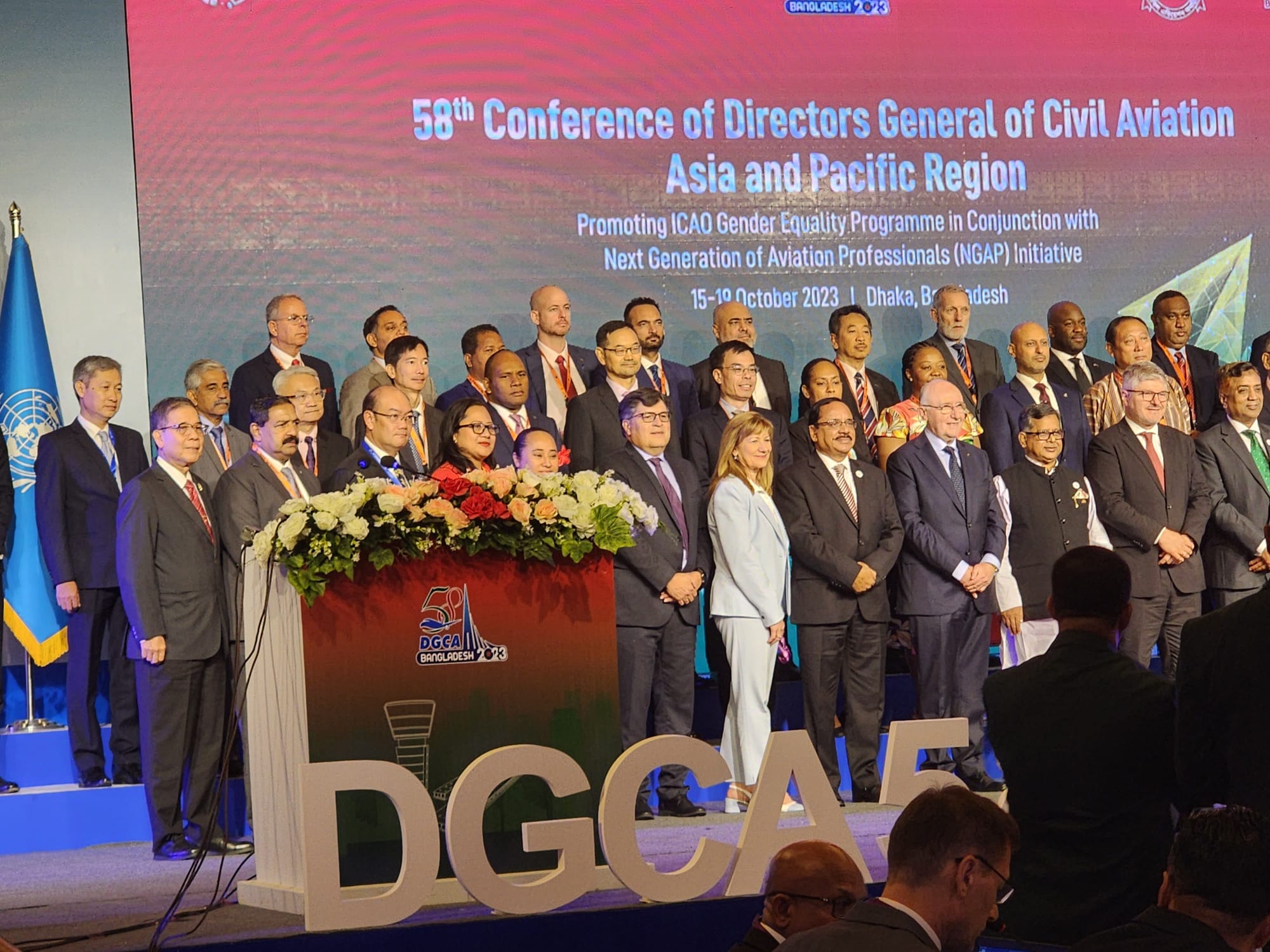The Airports Council International Asia-Pacific & Middle East (ACI APAC & MID), the trade association for airports, has reaffirmed its commitment to the sustainable growth and development of the airport industry at the ICAO 58th Conference of Director Generals of Civil Aviation for Asia and Pacific Region in Dhaka, Bangladesh.
ACI APAC & MID called for the promotion of sustainable airport infrastructure; diversity, equity and inclusion of the airport workforce, an outcome-based regulatory regime to facilitate the adoption of innovative technologies in aviation security, integration of advanced air mobility into the air transport system, and restoration as well as the development of air connectivity.
Restoration and Development of Air Connectivity
Before the pandemic, Asia-Pacific was the world's largest regional aviation market, handling 37% of global air passengers and transporting 47 million tonnes of air cargo (almost 40% of the worldwide total). However, the COVID-19 pandemic caused a significant -38% drop in air connectivity in the region, as per ACI APAC & MID. They urge regulators to take various steps to restore and boost air connectivity, including incentive programmes, partnerships with tourism authorities, and active participation in route development events. ACI APAC & MID also encourages States to consider market liberalisation, supporting new routes, increasing seat capacities, and simplifying visa applications for international travellers.
Building Sustainable Airport Infrastructure
Asia-Pacific anticipates exponential air travel growth, with projected 8.5 billion passengers annually by 2040, more than doubling 2019 figures. Swift action is vital for sustainable airport development and decarbonisation to avoid future costs. ACI APAC & MID urged States to incentivise airport infrastructure, support energy transition, and access to green finance. ACI APAC & MID also stressed the importance of economically sustainable capital expenditure (CAPEX) and involving industry stakeholders in decision-making processes.
Need for Integration of Advanced Air Mobility
Reiterating its position on the integration of Advanced Air Mobility (AAM) into the airport transport system, ACI APAC & MID called for harmonised standards, certifications, and supportive policy frameworks for the development of the new mode of transport. ACI APAC & MID also encouraged States to undertake continuous, inclusive and pragmatic dialogue between stakeholders of the AAM sector, conventional air transport and local communities, to provide safe, secure, efficient, and sustainable mobility solutions for all.
Promotion of Gender Equality
Considering that the aviation industry is an engine of social and economic growth, diversity, equity, and inclusion (DEI) of the airport workforce is particularly important given the critical role that airports and their employees play in facilitating global travel and commerce. Recognising the need for DEI, ACI APAC & MID encouraged ICAO and States to consider partnering with ACI and airport operators in the promotion of gender equality at airports at national and regional levels. ACI APAC & MID also encouraged States to develop DEI policies.
Adoption of Innovative Technologies in Airport Security
In the face of staff shortages impacting airport operations, ACI APAC & MID highlighted the urgent need for technological innovation to address the operational challenges at security checkpoints. ACI APAC & MID urged regulators to note the importance of innovation and technology in addressing the operational challenges caused by the security staff shortage and encouraged States to adopt an outcome-focused regulatory framework that would facilitate the trial and use of innovative technologies.
Commenting on the association’s position, Mr. Stefano Baronci, Director General, ACI Asia-Pacific & Middle East, said, “ACI APAC & MID remains committed to promoting the aviation industry's sustainability, gender equality, and technological advancements, and calls for continued collaboration with industry stakeholders and regulators to achieve these goals. These will be the key pillars for the development of our industry as we emerge from the shadows of COVID-19 pandemic. Strengthening these pillars will go a long way in making our industry more efficient and sustainable besides augmenting the contributions to the global economy.”
